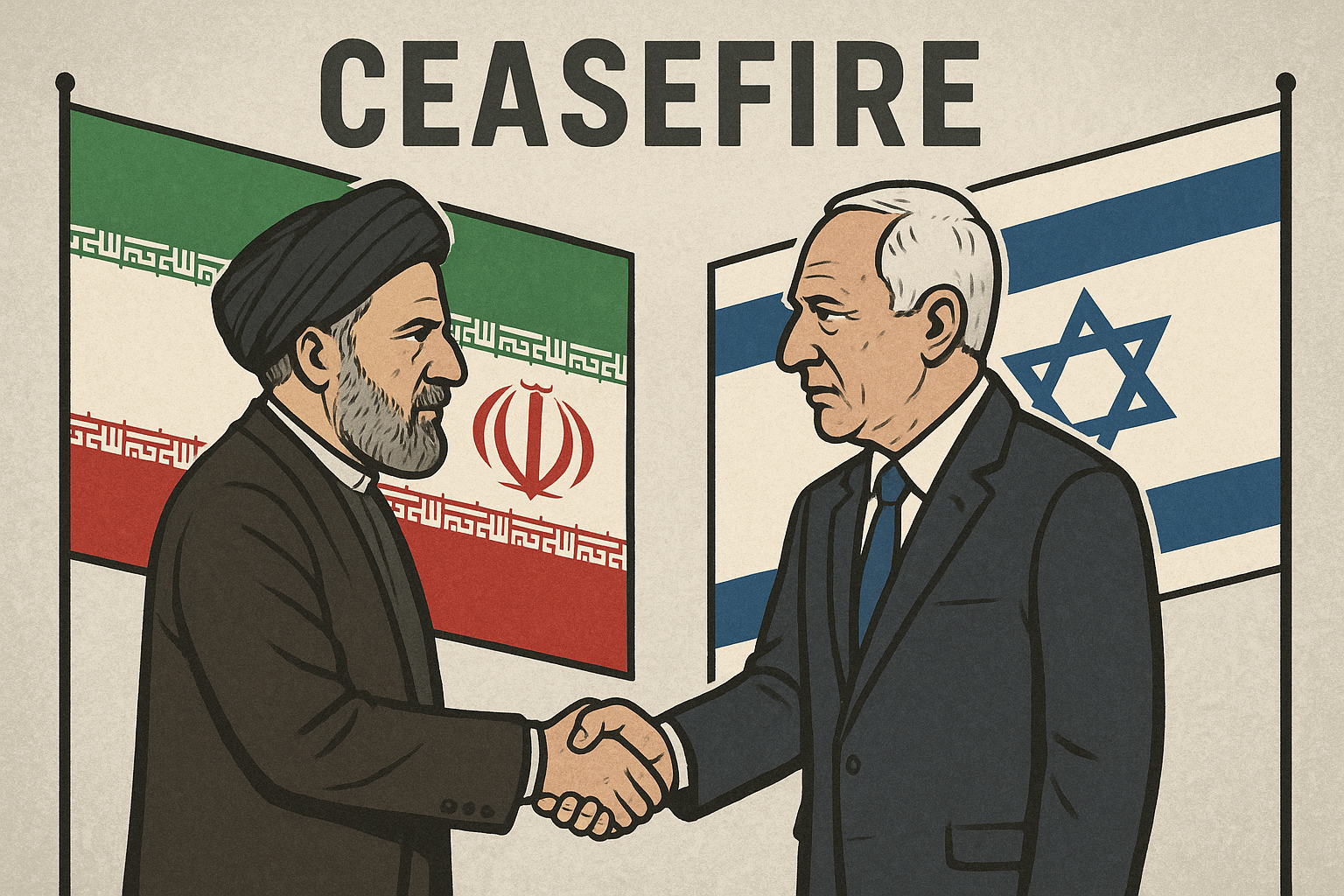
June 24, 2025 – Former U.S. President Donald Trump’s recent announcement regarding a potential Israel-June 24, 2025 – The political world was stunned when former President Donald Trump announced a potential ceasefire agreement between Israel and Iran. But with neither government confirming the deal and Middle East experts expressing skepticism, critical questions are emerging about the announcement’s validity and implications.
The Claim That Shook Global Diplomacy
In a late-night social media post, Trump declared:
*”Just brokered the most important peace deal in Middle East history – Israel and Iran have agreed to ceasefire terms after 40 years of conflict. More details soon!”*
The unexpected announcement comes at a volatile moment:
- Israel continues military operations against Iranian-backed groups in Lebanon and Syria
- Iran’s nuclear program advances despite Western sanctions
- U.S. election campaigning intensifies
5 Burning Questions About the Alleged Deal
1. Where’s the Proof? Examining the Lack of Confirmation
As of publication time:
- Israeli officials maintain “no comment” stance
- Iranian Foreign Ministry called the claim “American election propaganda”
- State Department confirms no involvement in any such negotiations
Expert Insight:
“Historically, Middle East peace deals require years of backchannel talks and public ceremonies. This sudden announcement without any paper trail is unprecedented,” says Dr. Sarah El-Kazemi, Middle East Studies professor at Georgetown University.
2. Could This Actually Work? The Geopolitical Reality Check
Key obstacles to any Israel-Iran agreement:
✔️ Proxy War Dynamics: Iran supports Hamas, Hezbollah, and Syrian factions
✔️ Nuclear Program Disputes: Israel demands complete dismantlement
✔️ Regional Rivalry: Competing influence in Iraq, Yemen, and Lebanon
Military Analyst Perspective:
“The only way this ceasefire holds is if it includes Iranian Revolutionary Guard pullbacks from Syria – something Tehran has never entertained,” notes retired IDF General David Meyerowitz.
3. Election Year Timing: Political Calculations Exposed
The announcement comes:
- 5 months before U.S. elections where Trump trails in key battleground states
- During Biden administration efforts to revive Iran nuclear talks
- Amid growing Republican criticism of Israel’s war strategy
Political Scientist Observation:
“This has all the hallmarks of an October surprise attempt six months early,” says University of Virginia’s Dr. Robert Jenkins. “The base loves strongman foreign policy wins, even unverified ones.”
4. Regional Domino Effect: Who Wins and Loses?
Potential consequences:
→ Saudi Arabia: May accelerate normalization talks with Israel
→ Russia: Could lose leverage as Middle East peacemaker
→ Oil Markets: Immediate 3% price drop on announcement
Economic Impact:
“Any legitimate Israel-Iran detente would reshape global energy markets,” notes Barclays commodities analyst Jasmine Fahd. “But traders aren’t buying this yet – prices rebounded within hours.”
5. What Happens Next? Three Possible Scenarios
- Collapse: Denials from both countries within days
- Partial Acceptance: Backchannel agreements emerge gradually
- Political Tool: Becomes campaign talking point regardless of reality
The Verdict From Diplomats
Current and former U.S. officials speaking anonymously suggest:
High probability this is election-related posturing
No active backchannels between Jerusalem and Tehran
UAE and Oman potentially serving as intermediaries if any truth exists







